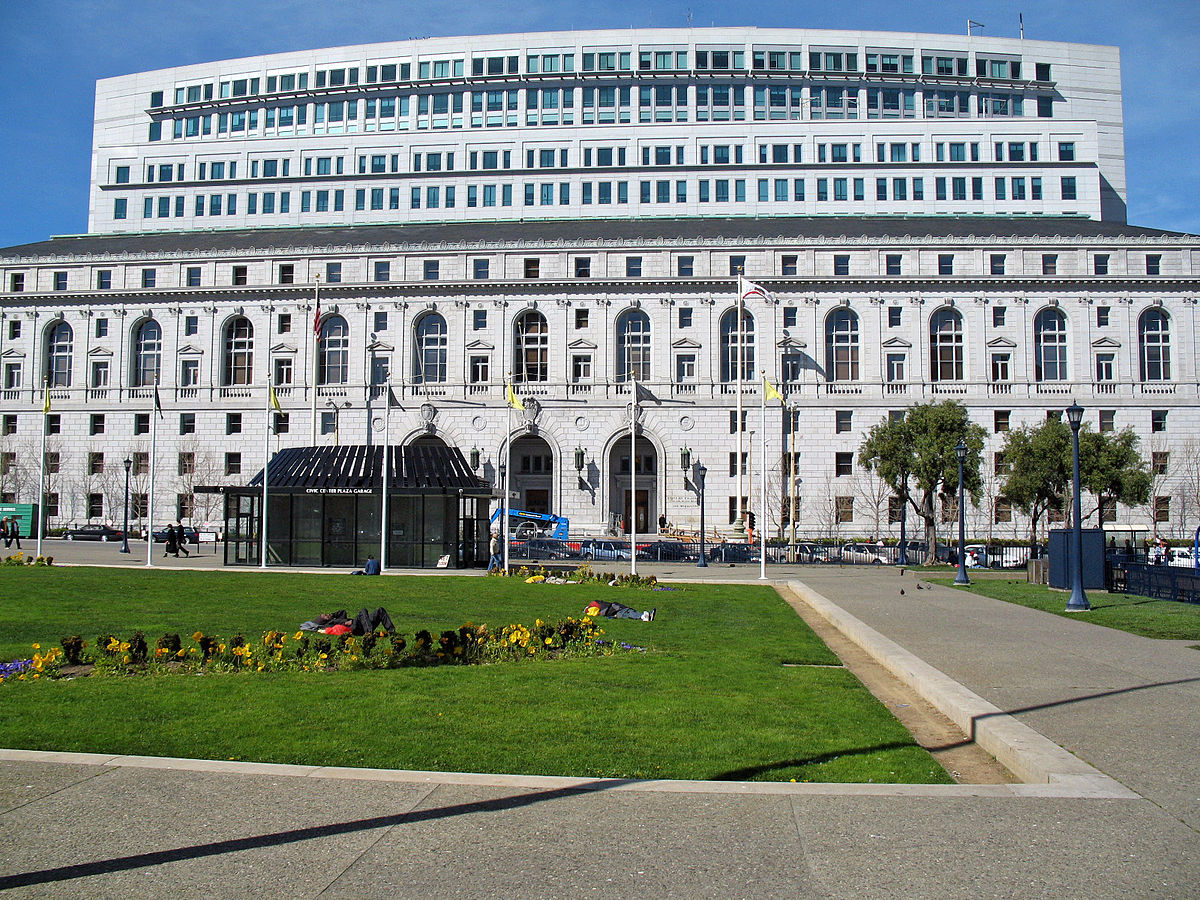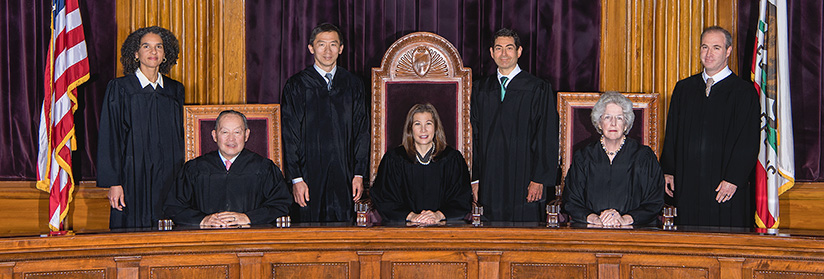
Judge's gavel on courtroom background. Law and justice. (Photo: Zolnierek, Shutterstock)
Legal Analysis: California Court of Appeal Primarily Upholds Prop. 22
Allows app-based drivers to be classified as independent contractors
By Chris Micheli, March 16, 2023 6:57 am
On March 13, 2023, the California First District Court of Appeal, in Castellanos v. State of California, primarily upheld Proposition 22 on two main grounds. As readers may recall, Prop. 22 was approved by 58% of the voters on the November 2020 general election ballot in California. Prop. 22 allows app-based drivers to be classified as independent contractors if specified conditions are met. Prop. 22 was a statutory initiative and it added Sections 7448 – 7467 to the Business and Professions Code.
An Alameda County Superior Court judge granted a petition filed by opponents of Prop. 22 that the entire ballot measure was invalid. The court of appeal on March 13 ruled 2-1 that Prop. 22 does not violate the state Constitution on either the Legislature’s authority over the workers’ compensation system or the single subject rule. However, two subdivisions were deemed to violate the separation of powers doctrine and were severed from the remaining provisions of the successful ballot measure.
Looking ahead, the court of appeal decision will become final 30 days after March 13, and then either party can file a petition for review with the California Supreme Court.
According to the court of appeal, the trial court ruled that Prop. 22 (1) is invalid in its entirety because it intrudes on the Legislature’s exclusive authority to create workers’ compensation laws; (2) is invalid to the extent that it limits the Legislature’s authority to enact legislation that would not constitute an amendment to Proposition 22, and (3) is invalid in its entirety because it violates the single-subject rule for initiative statutes.
However, the First District Court of Appeal ruled that Proposition 22 does not intrude on the Legislature’s workers’ compensation authority or violate the single-subject rule, “but we conclude that the initiative’s definition of what constitutes an amendment violates separation of powers principles. Because the unconstitutional provisions can be severed from the rest of the initiative.”
Regarding the constitutional provisions governing workers’ compensation law (found in Article XIV, Section 4), the court of appeal said that, rather than reading it as conferring power only to the Legislature, it was instead required to “read article XIV, section 4 as though it said, ‘The Legislature or the electorate acting through the initiative power are hereby expressly vested with plenary power, unlimited by any provision of this constitution, to create, and enforce a complete system of workers’ compensation . . . .’”
The majority opinion disagreed with the dissenting opinion that Article XIV, Section 4 delegates power specifically to the Legislature and not the voters. The court of appeal reasoned that the constitutional provisions do not require every worker to be covered by workers’ compensation. Moreover, “the Legislature or the voters may exclude app-based drivers entirely from workers’ compensation benefits.” As a result, the court of appeal concluded that Prop. 22 does not violate the workers’ compensation provisions of the state Constitution.
The court of appeal next turned to the issue of whether Prop. 22 violates the single subject rule. Here the appellate court reviewed the case law and that “the ‘reasonably germane’ standard is applied ‘in an accommodating and lenient manner so as not to unduly restrict . . . the people’s right to package provisions in a single bill or initiative.’”
According to the court of appeal, “Proposition 22’s common theme or purpose is … the creation of a new balance of benefits and obligations for app-based drivers in lieu of either traditional employment or traditional independent contractor status.” The appellate court also determined that Prop. 22’s “overarching single subject is regulation of the relationships between app-based drivers and network companies.”
It was interesting to note the court of appeal’s statement regarding the narrow view set forth by the plaintiffs: “Additionally, plaintiffs’ approach would make the single-subject inquiry unworkable. Initiatives commonly state multiple purposes or motivating concerns, between their titles, preambles, findings, declarations, and substantive provisions.” In addition, the appellate court stated, “Plaintiffs cite no authority that requires different provisions of an initiative to cross-reference each other, and the law is to the contrary.” As a result, there was no violation of the single subject rule.
The final point of contention addressed concerned the following two provisions of Prop. 22 found in Business and Professions Code Sections 7465(c)(3) and (4):
(3) Any statute that prohibits app-based drivers from performing a particular rideshare service or delivery service while allowing other individuals or entities to perform the same rideshare service or delivery service, or otherwise imposes unequal regulatory burdens upon app-based drivers based on their classification status, constitutes an amendment of this chapter and must be enacted in compliance with the procedures governing amendments consistent with the purposes of this chapter as set forth in subdivisions (a) and (b).
(4) Any statute that authorizes any entity or organization to represent the interests of app-based drivers in connection with drivers’ contractual relationships with network companies, or drivers’ compensation, benefits, or working conditions, constitutes an amendment of this chapter and must be enacted in compliance with the procedures governing amendments consistent with the purposes of this chapter as set forth in subdivisions (a) and (b).
Here the court of appeal explained that the plaintiffs argued in their petition that Sections 7465(c)(3) and (4) are facially unconstitutional because they intrude on the judiciary’s power to define what constitutes an amendment to Proposition 22, and that Section 7465(c)(4) on its face unconstitutionally limits the Legislature’s authority to enact related but distinct legislation.
Thereafter, the court of appeal examined in detail three arguments: a facial challenge, ripeness, and the merits of the plaintiffs’ position. Here the appellate court determined that Sections 7465(c)(3) and (4) are facially invalid on separation of powers grounds “because they intrude on the judiciary’s authority to determine what constitutes an amendment to Proposition 22, and Section 7465(c)(4) fails for the additional reason that it intrudes on the Legislature’s authority by artificially expanding Proposition 22’s Article II, Section 10(c) shadow.”
In conclusion, the court of appeal explained that “the proper remedy for the separation of powers violation is to sever Sections 7465(c)(3) and (4) and allow the rest of Proposition 22 to remain in effect, as the voters indicated they wished.”
- General Provisions for Courts of Justice - May 21, 2025
- Pleadings in Civil Actions Generally - May 20, 2025
- Why Do Some Tax Increase Bills Only Contain an Urgency Clause? - May 19, 2025







